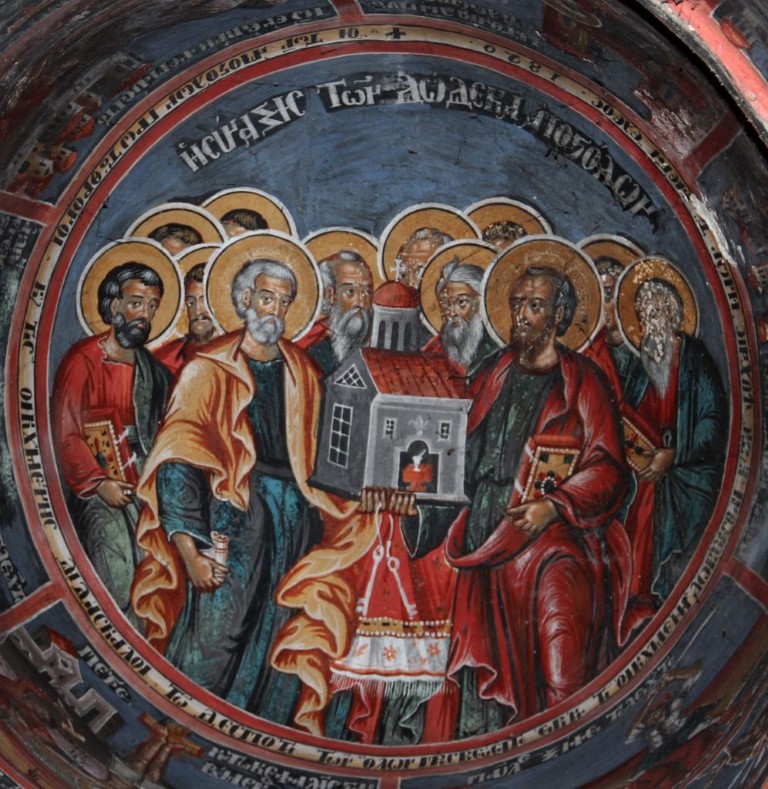– Rev José Mario O Mandía
Many persons regard Jesus Christ as an outstanding Person, and may even accept his Divinity. But for them, Jesus is a personage from the remote past with no connection to the present. Is that really so? Or did Jesus make sure that His mission would continue down the centuries?
The Synoptic Gospels (Matthew, Mark and Luke) tell us that Jesus hand-picked twelve men from among his followers (disciples) to whom he gave a special mission (as apostles): “And he called to him his twelve disciples and gave them authority over unclean spirits, to cast them out, and to heal every disease and every infirmity” (Matthew 10:1); “And he went up on the mountain, and called to him those whom he desired; and they came to him. And he appointed twelve, to be with him, and to be sent out to preach and have authority to cast out demons” (Mark 3:13-15); “In these days he went out to the mountain to pray; and all night he continued in prayer to God. And when it was day, he called his disciples, and chose from them twelve, whom he named apostles” (Luke 6:12-13).
Matthew 28 (18-20) records the words of Jesus that gives his apostles authority: “And Jesus came and said to them, ‘All authority in heaven and on earth has been given to me. Go therefore and make disciples of all nations, baptizing them in the name of the Father and of the Son and of the Holy Spirit, teaching them to observe all that I have commanded you; and lo, I am with you always, to the close of the age.’”
Jesus passed on the authority and mission he received from the Father (the word “mission” comes from the Latin “mittere,” which means “to send”) to the apostles. “As the Father has sent me, even so I send you” (John 20:21).
Consequently, Jesus tells them, “He who hears you hears me, and he who rejects you rejects me, and he who rejects me rejects him who sent me” (Luke 10:16; cf John 13:20).
Saint Peter later explains that their mission was to give testimony about Jesus Christ: “And we are witnesses to all that he did both in the country of the Jews and in Jerusalem. They put him to death by hanging him on a tree; but God raised him on the third day and made him manifest; not to all the people but to us who were chosen by God as witnesses, who ate and drank with him after he rose from the dead. And he commanded us to preach to the people, and to testify that he is the one ordained by God to be judge of the living and the dead” (Acts 10:39-42). This is why, when they had to choose a successor to Judas, he spelled out the credentials required of the candidate: “So one of the men who have accompanied us during all the time that the Lord Jesus went in and out among us, beginning from the baptism of John until the day when he was taken up from us–one of these men must become with us a witness to his resurrection” (Acts 1:21-22). An apostle must have known Jesus Christ personally.
Moreover, Jesus promises to be with them “to the close of the age,” till the end of the world. He not only names his immediate successors, but guarantees that the mission will be passed on to their successors till the end of time. History shows that through the centuries the apostles’ mandate was passed on to the bishops: they are the successors of the apostles. This is one reason we profess that the true Church is “apostolic.”
The apostolic power was passed on through the “laying of the hands.” Thus, Saint Paul writes Timothy, the first bishop of Ephesus: “Do not neglect the gift you have, which was given you by prophetic utterance when the council of elders laid their hands upon you” (I Timothy 4:14, cf 5:22 and II Timothy 1:6).


 Follow
Follow


